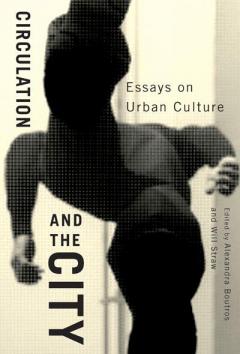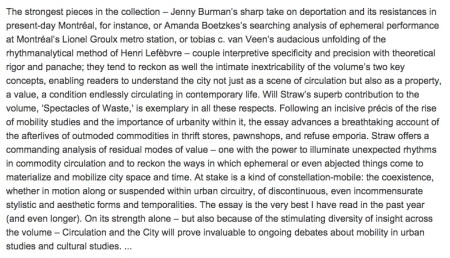Letter to the CBC’s new show on (neoliberal) economics, The Invisible Hand. The letter is self-explanatory. The first episode provided such a weak justification of the so-called “free market” that any first-year philosophy student could’ve poked holes through it.
dear Mathew & Invisible Hand,
Thanks for your new show. As a student of political economy, I found it interesting, and I always like it when radio tries to break down topics like economics for the listener.
However your example provided today was quite lacking in the reality department. I want to pick through it a bit, because I think you can go a lot deeper than this. The consequence of not revealing the true difficulty of economic policy decision-making is obvious: you refer to “economists” as if they are one bunch of people, all thinking the same thing. This, of course, is not the case. The “economists” you are referring to in your show on Hurricane Katrina are neoliberal economists, who believe in a fictional caricature known as the “Rational Actor,” who also plays in a nearly fictional environment known as “the free market.”
Indeed, current “economists” have finally begun questioning these models after fourty years of near unquestioned dominance within mainstream “economics” circles. But I digress.
Let’s liven up your example, and remember that all economics includes ethics. In short, economy, because it always involves people, and thus tensions between individuals and the collective authority that we call the State, is always political economy.
=== THE ICE IS FOR SALE : A REAL SCENARIO ===
In your example, ice is for sale during a disaster. Your customers include those seeking non-essential uses (corsages, cookies) and those seeking essential services (health care and emergency response).
But no mention is made of the purchasing power of the health care and emergency services. Let’s pretend we’re in Canada first.
SCENARIO 1: FREE MARKET ALLOWED, CANADIAN CONTEXT
1. The hospital can only afford $10 worth of ice. At the normal rate of $1 per bag, it can keep alive its ten patients. At $9 per bag, it can only keep alive one patient. This is the first consequence of the so-called free market, where prices are allowed to rise during a disaster.
1a. Of course, the hospital has emergency funds, and so they dip into them or borrow funds of the public trust to buy ice at 9x the price, thus paying $90 for the ice that would’ve cost $9 before the disaster. This has immediate consequences — the hospital has now spent the money it had saved up for a new diagnostic machine, and so cancer patients awaiting this new treatment will suffer, and perhaps die because of it. Further, the hospital now has debt to pay off if they borrowed the money, plus interest. Where will the hospital get the funds? In the Canadian system, from taxes and/or increased user fees. The ultimate consequence of hospitals paying 9x the price is that taxes rise to cover the trickle down effect of inflated purchases — all so that the corner-store ice owner could make 9x the profit, or, as neoliberal economists put it, “equitably distribute the ice to the agent with the highest need.”
Meaning, in short, we all pay the cost for a single individual’s wealth, while risking lives in the process.
SCENARIO 2: FREE MARKET ALLOWED, U.S. CONTEXT
1. The public hospital can only afford $10 of ice. It is in the same situation above, except that it cannot raise taxes due to neoliberal economic policies that keep taxes down, so that the “free market” can operate more freely. After the disaster, the hospital is shut down as it costs too much money, and the 9x-the-cost acquisition fee is paraded as proof of the inefficiency of the public service. Scores of uninsured Americans fall through the cracks — the deaths are of course unreported, as there is no public service to do the analysis.
1a. Of course, there is a private hospital buying ice too that can well afford the ice. It buys a large chunk of the available ice with the wealth it has from privatized, high-end health services delivery. Those with health insurance (mainly the wealthy) receive the ice and live through the disaster.
The meaning here is obvious: services with equity survive, and so do their wealthy patients; those without wealth do not. Might makes right in this “free market.”
SCENARIO 3: NEITHER / NOR: THE STATE IS FOR ALL
In your example, you only offered two choices: either all bags of ice are sold for $1 at a first-come, first-serve basis, or the seller can raise the price to exclude so-called frivolous buyers, so that only those with the greatest need buy the ice.
Of course, this is already a fallacy. Investors can buy and hoard ice, creating a futures ice market during the disaster, and trade large amounts of ice to scaled buyers (those with wealth), creating price fluctuations that generate large amounts of profit. This already exists on a formal scale, and is called the stock market. During disasters, this exists in the form of what is usually called the black market. Throughout history, such markets have popped up — such as in Leningrad during the siege of World War II. However, the people turned on such “free marketeers,” distributing street justice to hoarders and profiteers. And for good reason; the above example should demonstrate that no market is “free” when there is inequality of means to begin with. So here’s a truly rational, third example:
1. The hospitals and all emergency services are given priority access to the ice market by the State. All corner-store shops are mandated to sell ice to health personnel at the normal rate of $1. In this scenario, hospitals and emergency professionals get what they need, thanks to the emergency provisios of the State, which steps in not to “interfere with the free economy” but to insure that the economy does not enter a period of hyperinflation that would only benefit the wealthy (those that could afford the ice or private services that can) and which would have disastrous consequences upon the impoverished and upon public health as a whole (the impoverishment of health services would result due to hyperinflation of necessary supplies).
Indeed, this is what we already have in Canada and the US: various services are declared essential services. (However, in the current situation, this is usually only enacted to limit the right of labour to strike, rather than to provide fair access to necessities — but I digress.)
1a. In times of dire emergency — what is called a “state of exception” — the State can go much further than this. In World War II, many States introduced food stamps and rations. In this scenario, all ice production is monitored and controlled by the State, to ensure that everyone receives a fair portion (this is also how Leningrad survived the Siege of World War II: without such strict rationing, ie, not only intervention of the State into the market, but direct control of supply and demand by the State, many more would have died). Indeed, in extreme examples, the State has the right to commandeer property and materiel (though today this is abused to kick out land owners for the benefit of mining, the oil and gas industry, shale fracking or pipelines — such as in Québec’s Plan Nord; but I digress again).
1b. If things aren’t quite that bad, but bad enough, the State can introduce intermediary policies, such as demanding that ice be sold direct from producers and distributors to health services at cost — at enough of a margin to cover expenses and live from, but less than standard pricing, say at 40% off retail. In this scenario, less profit is made by one industry in order to better provide the required health services for all. In short, the short-term profits of the few are sacrificed to save the lives of the many. The State has every right to do this to protect its health care services in times of disaster.
Moreover, it is right to do so: by ensuring cheap supply to necessary services, there is no tab to pick up later. Companies selling the required services make a tad less profit, and certainly don’t reap in profits from price-gouging, but neither do they go under or face higher taxes as a result of the “free market,” had it been allowed “free reign” to raise prices to obscene levels.
=====
I sincerely hope that in future shows you go beyond the facile, bloodless examples you’ve already provided. There are no economic policies without consequence, especially when dealing with disasters. Economics always involves ethics.
The correct answer to the real-life problem of disaster supply management is that both of the options provided on the show — either $1 pricing or $9 price-gouging — are ultimately inefficient and wrong. In both cases the “market” is relied upon to provide necessities without any hint that a democratic state has the authority to garner what resources it needs to ensure the survival of the many, if not all.
This is what democracy means: it is above the market.
The actual reality is that the State ought to, and as in the case of Katrina, finally did step in and provide such necessities.
As for the Louisiana ice-seller, some laws are necessary here, because the actual issue is not price-gouging, but street justice. If a seller is seen as contravening the basic ethical principles of community that arise from human nature during such disasters, such a seller may be dispensed without mercy. Indeed, the law is there to limit such activities to protect the safety of such sellers. A better solution would be to have the State request all entrepreneurs to maintain prices at a fair percentage; and they too would be subject to certain pricing regulations when selling to health and other necessary services.
So in this case, Louisiana should not have made an example out of the truck seller (who sold generators). A true example should’ve been made of the hired mercenaries — ie Blackwater USA — that poured into New Orleans to secure the privilege and property of the wealthy, distributing privatized violence at will, and introducing a climate of fear that descended into racism on a mass scale.
Hopefully your show will go much farther in demonstrating the ethical choices behind economic policy in future episodes, as well as showing that alternatives to either/or propositions exist. At the least, I hope your show will stop referring to “economists” as some homogenous group. As a political economist, I certainly found little to agree with in the models presented, for they are nothing but fictions designed to present what many of us “economists” would argue is a dangerous neoliberal ideology: that of the “free market.”







 RT
RT 